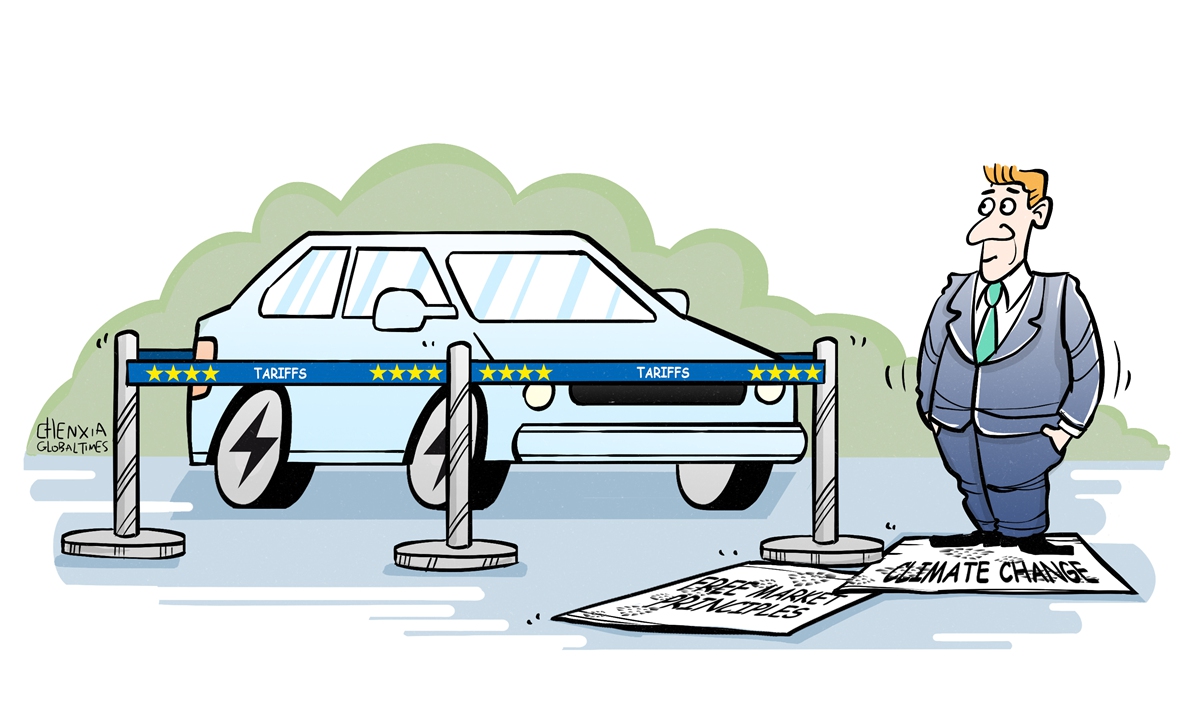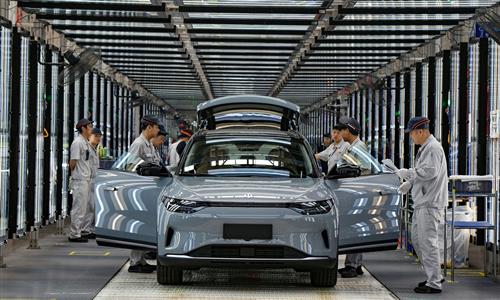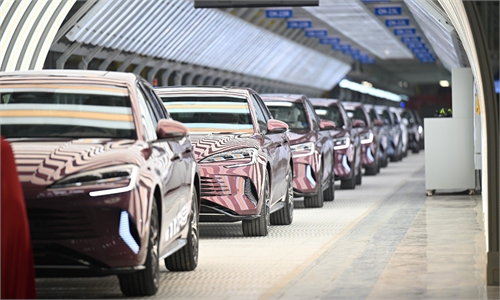
Illustration: Chen Xia/GT
Several European leaders and businesses have expressed opposition to the move by the European Commission (EC) to impose extra duties on Chinese-made electric vehicles (EVs), saying such a protectionist move will harm both the European auto industry and consumers, as well as undermining efforts to realize carbon neutrality, Xinhua News Agency reported on Thursday.
The EC announced on June 12 provisional measures including plans to levy temporary countervailing duties ranging from 17.4 percent to 38.1 percent on EVs originating in China starting from Friday.
The strong backlash from European political and business circles underscored the unpopularity of the EC's move, as well as the politicization of trade issues by the executive body of the EU.
In a statement sent to the Global Times on Thursday, the China Chamber of Commerce to the EU (CCCEU) expressed its disappointment about the duties and urged the European side to focus on enhancing charging infrastructure rather than adopting trade protectionist measures. "The chamber is deeply disappointed and dissatisfied with the EU's imposition of high provisional countervailing duties on imports of Chinese EVs," it said.
"We firmly oppose this politically driven trade protectionist move by the European side. We welcome the numerous rounds of technical-level consultations conducted between China and the EU regarding the investigation. We hope the two sides will find a constructive solution before the final ruling in November," the chamber said.
The strong response by the European leaders and businesses following rounds of criticism by a wide range of parties showed that the EC's decision on June 12 is not based on the needs of its automotive industry and will not do much to protect EU industry, said Chinese experts.
BMW Group Chairman Oliver Zipse was quoted in a statement as saying that the EU's approach is impractical and potentially damaging to European car manufacturers engaged in global operations.
"The introduction of additional import duties leads to a dead end. It does not strengthen the competitiveness of European manufacturers. On the contrary, it not only harms the business model of globally active companies, but also limits the supply of electric cars to European customers and can therefore even slow down decarbonization in the transport sector. Such measures heavily infringe on the principle of free trade, which is also propagated by the EU," said Zipse in a note sent to the Global Times on Thursday.
Meanwhile, German Minister for Digital and Transport Volker Wissing called the tariff increase a "destructive" move, urging the EU to prioritize fair competition rules over tariffs. Hildegard Mueller, president of the German Association of the Automotive Industry, called for a constructive dialogue between Europe and China to find mutually beneficial solutions, Xinhua reported.
"The EU's tariff hike against Chinese EVs would not benefit anyone, impacting both Chinese and foreign car manufacturers operating in China," said Matthias Bauer, director at the European Centre for International Political Economy.
Another European expert, Zoltan Kiszelly, director of the Center for Political Analysis of Szazadveg, a Hungarian think tank, also criticized the EU for disrupting market competition in the EV sector, warning that it will impede free trade, hinder collaboration in technological advancements, and have a negative impact globally, according to Xinhua.
Chinese ministries, industry bodies and business groups have also sharply criticized the EC's decision and have vowed to take all necessary measures to defend the interests of Chinese companies.
Global Times


